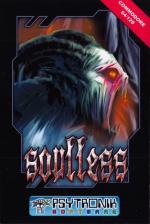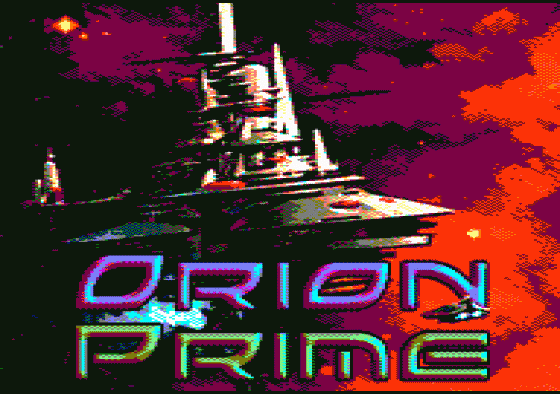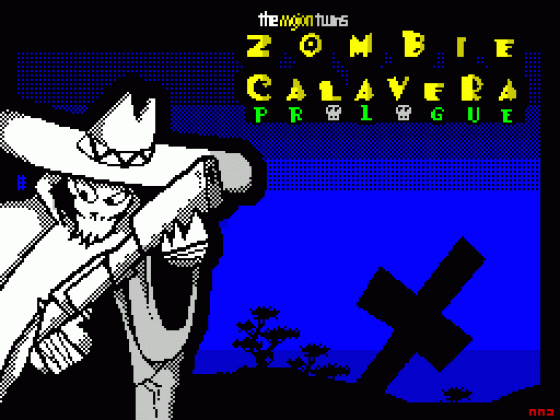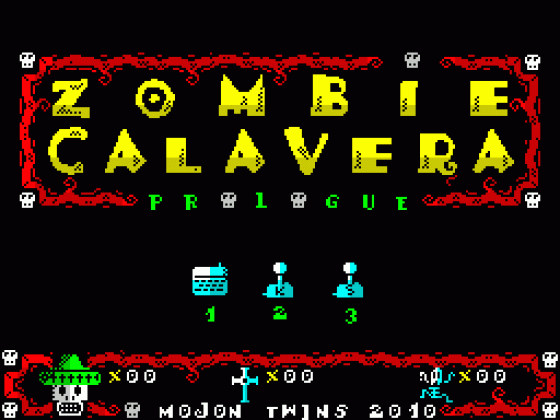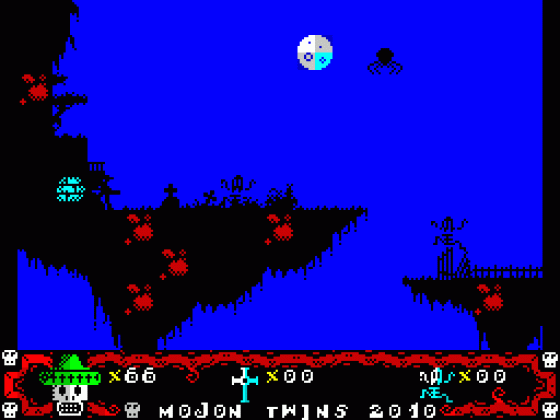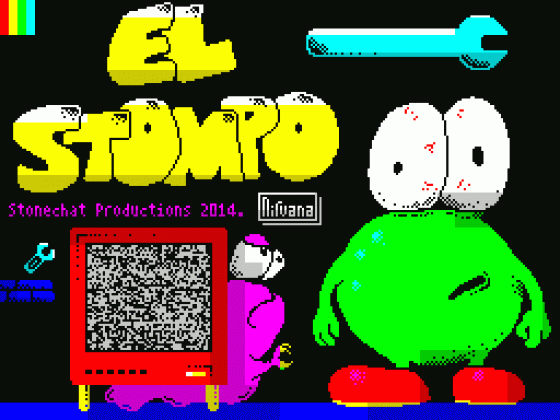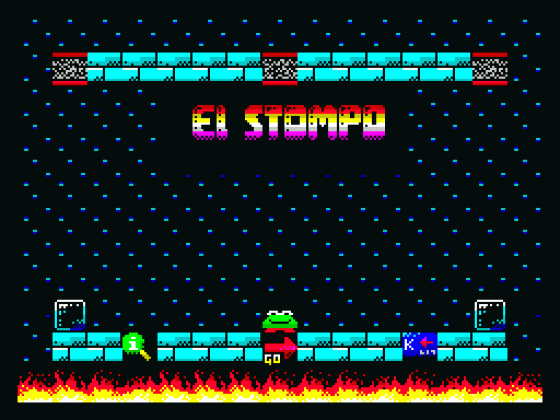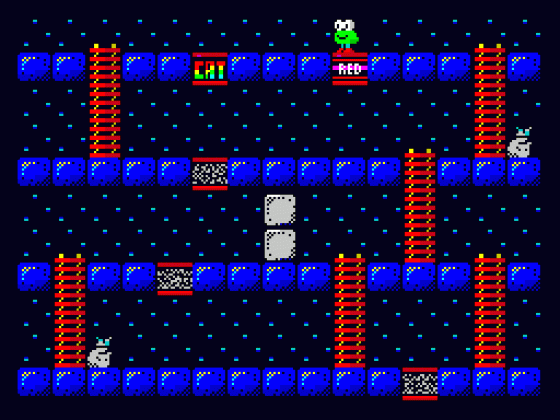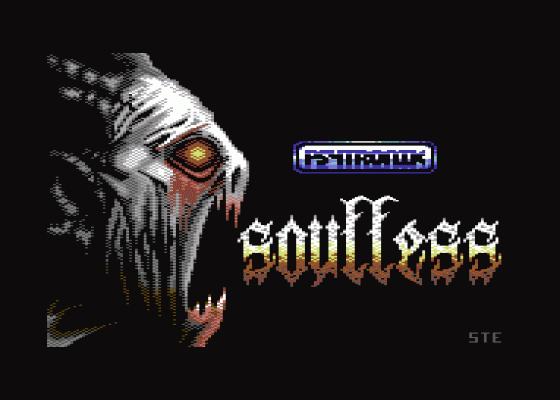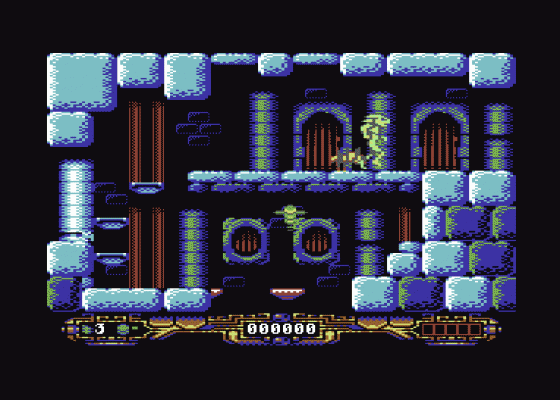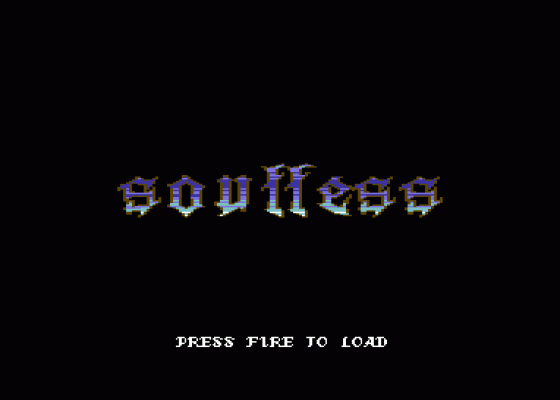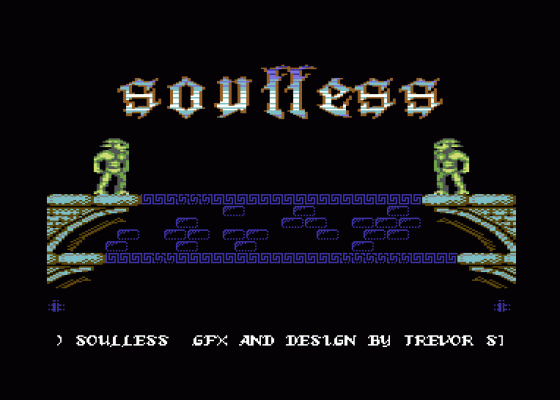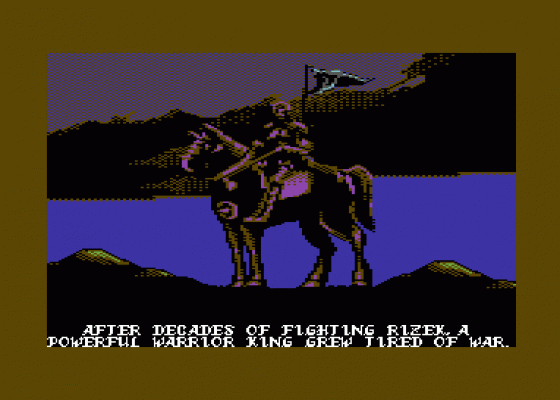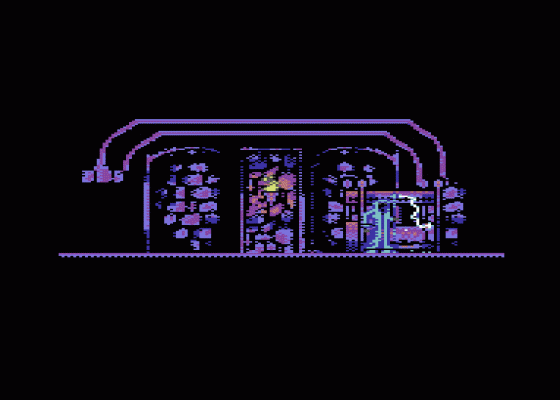
Micro Mart
 19th February 2015
19th February 2015
Categories: Review: Software
Author: Dave E
Publisher: Psytronik
Machine: Commodore 64/128
Published in Micro Mart #1350: February 2015 Special
Dave Edwards invites you to lose your soul, blunder around in the dark, watch the birdie, feel chills creep up your spine and explore a scrolling castle - all on machines that were first offered for sale more than three decades ago
Introduction
Retro Round Up is, actually, a round up of this month's brand new releases on retro machines. Last month's column had a theme, in that we were looking at new releases which were only available to buy on the original cassette/disc format. This month we have more of a mixed bag, with three "free" games and three "paid" ones under the microscope.
Before we dive into these (and there are some marvellous games this issue!), a clarification. When you buy a "paid" retro game, all suppliers do also send you an emulator-file version of the game (whether that be by e-mail or on a CD) in addition to the original media. Additionally, I doubt that any "paid" retro games are created specifically to be sold for profit; the main reason why certain titles are distributed physically (with a small charge to cover the media) is because the waiting for the game to be delivered is all part of the experience.
If you were around in the Eighties, you will recall this experience very well - sending off your cheque and then waiting for the padded envelope containing your tape(s) to arrive. If you weren't, don't knock it until you've tried it. This "experience factor" is often not under-appreciated if you simply click, download and play - which is usually the fare of a "free" retro game.
Without further ado, then let's enter this familiar world where games don't always make sense, where ludicrous ideas make an odd sort of sense and where you cannot help but marvel at what can be achieved on some of the oldest computers still living and breathing...
Amstrad Action
Orion Prime is a gargantuan point-and-click adventure for the humble Amstrad. You take on the role of a drug-runner, who works a solitary, and quite-profitable, flight-path between two planets. Until, that is, your life of Riley comes to an end when your craft is hit by a rogue asteroid belt and you limp into the belly of the Orion Prime space station. Eerily silent, it's quickly apparent from the dead bodies littering every scene that, whatever happened here before, it wasn't good.
Orion Prime is a fascinating piece of software, particularly if your memories of the Amstrad extend little further than Roland On The Ropes. Every location of your new prison is illustrated, and described in a flawless, detailed narrative. You make progress by clicking on whatever you can see to interact with it. Within the first few minutes, you'll also need to play one of the first mini-games, a variant of a sliding-block puzzle reminiscent of the PS2 game 24.
It's sophisticated stuff, thoroughly modern - and playable with the minimum of fuss on the superb WinApe Amstrad emulator. To see more, visit https://www.youtube.com/watch?v=HF_Wwy-0BhI. Note that a limited number of discs were physically produced of Orion Prime. Alas, these are now long depleted and considered genuine collectors' items. You can now download and play the game totally for free from the official Orion Prime site.
Not So Angry Birds
The Dragon 32 is always getting "new" releases - because it shares a great deal of circuitry with the Tandy CoCo; so much so, in fact, that even 100% machine code games for the CoCo can (now) be converted between the two machines with relative ease. Flagon Bird, however, is a genuinely new Dragon game rather than a converted CoCo one (It's also, unsurprisingly enough given the above, available on the CoCo too!). The game is a version of Flappy Bird, and released by Bosco Software. Possibly one of the most addictive, and frustrating, games ever written, Flagon/Flappy Bird invites you to pilot a bird through a series of pipes by flapping its wings at the right moment. Easier said than done, four games in a single minute can be seen here.
Flagon Bird is available for free from the Dragon Archive - and you'll also find a great deal of further information on its fans, both here and abroad, on the forums of this site. To see a real master, why not visit Metr81's YouTube video at where he puts my personal high score of 15 pipes cleared to shame with a whopping 254...!
Anyone who is interested in the hundreds of other new titles for this fiery Welsh green-screen machine, should also check out www.dragon32universe.info/.
Beating The Beeb
The bad news is that, for the BBC/Electron, 2014 saw the release of only a single game but the good news is it's a cracker. Produced by Retro Software (http://www.retrosoftware.co.uk), Castle Raider is a scrolling graphic adventure of the keys-locks variety, setting you the task of exploring a huge castle and escaping with some of the treasure. You can wander left and right, and jump the patrolling nasties, whilst entering the doorways takes you to other areas of the castle. You'll need to map it all out to find the quickest route to the keys you need to progress the quickest.
Actually, the most impressive thing about Castle Raider isn't the premise but the actual scrolling itself. Limitations of the hardware meant that not a single smooth-software-scrolling game on the Electron ever made it to completion back in the day; even classics such as Stryker's Run scrolled on the BBC but became flick-screen on its baby brother. Programmer David Boddie set himself the personal challenge of writing code that could do it - and, on top of that achievement, it's fair to say that he hasn't managed a bad little game in Castle Raider too!
Castle Raider is available, again for free, on both tape and disc from Retro Software. However, rather than charge you for the game itself, the site supplies an inlay for you to print out yourself.
Lost In The Dark
Zombie Calavera (Zombie Skull) is a platform game from the Mojon Twins, released now by Monument Microgames in a superb oversized box. Alas, the game inside the box falls somewhat short of expectations.
You play Santos and your task is to wander through rooms collecting crucifixes whilst jumping or shooting the roaming skeletons. whilst there's nothing new there, some ideas are laid on top of this tried-and-tested formula. Skeletons don't die when shot; they instead turn into vampire bats which ricochet around the room instead. And colliding with anything that moves doesn't just deplete Santos' energy; it also throws him unpredictably around the room.
These are enough of a challenge alone, but are only half the story. The game is rendered entirely in dark blue and black, with Santos barely discernible at all in some positions in some rooms. See https://www.youtube.com/watch?v=0Lj2sl0k3yo for an example. In addition, having been supplied with a nice glossy booklet explaining the Legend of Santos and the Zombie Skull, you'd expect the text therein to be relevant to the game itself. Instead, it's page after page of waffle.
Zombie Calavera can be purchased from Monument Microgames (http://www.monumentmicrogames.com/) for £7.00 (P&P included).
Fuzzy Televisions
And now, a short digression...
Old analogue TV sets were great, weren't they? One great big tuning knob, an aerial that you needed to position differently depending on the channel you wished to watch and the comfort that any problems with either could be easily remedied by whacking the top of the TV as hard as you could. Students would probably still be watching this way had the old analogue signal not been turned off. But it was - and those analogue broadcasts were lost into the ether.
Except that these signals have now arrived on El Stompo's planet, and the aliens there have a bunch of TVs that should allow them to enjoy their fix of EastEnders. Unfortunately, their TVs will only work after El Stompo has jumped up and down on each of them. Such is the charming scenario of Monument's second offering, El Stompo.
What we have here is part arcade platformer and part logic puzzle. The game has 35 screens featuring ladders and levels, patrolling aliens and the odd button, brickwork or television to stomp upon. Each screen is progressively harder, with a surprisingly colourful palette ("No colour clash!" screams the boxart which is a peculiarly Spectrumesque claim!).
The back-story give the game its charm. For British players only, it also gives the opportunity to count the number of old TV programme logs they recognise. On top of this, El Stompo is actually pretty enjoyable, dispensing with a lives or password system in favour of just presenting you with each scene in turn until you win it (rather like Angry Birds). You can see the first few levels here.
Hole In Your Soul
Psytronik Software has an extremely large catalogue of games for sale, and Soulless is one of its more recent. According to the premise, your crime was to call for a pacifist society and, as a result, you were captured, turned into a beast, had your soul stolen and your enemies locked you in a tomb for a thousand years. Nice.
Soulless begins with a graphical demo showing this entire story, complete with an explosion of amazing C64 music. This is promising stuff on such a dated machine, and the care and attention lavished on the programming, graphics and music is similarly breath-taking. A development team of three big C64 names (Georg Rottensteiner, Trevor Storey and Mikkel Hastrup) is responsible. You'd wonder what could go wrong?
From this promising beginning however, I found Soulless the game to commit the sin of being rather run-of-the-mill graphical adventuring. Its main failing is that, although it includes a "massive map to explore", progress through the rooms is linear; you're not "free", a la Jet Set Willy, to decide which room to visit next. Instead each game becomes a tiring trek through the same rooms in the same order, and it's easy to collide with the roaming nasties and be sent all the way back to room one. After only a few goes I became quite dispirited, and was heading back to Flagon Bird.
Time And Tide
As you can probably glean, whether a game is "free" or "paid" in Retro World is largely unconnected to its quality. All of the games featured this issue are labours of love where the main ingredient is passion.
This makes even the bad games seem good; particularly in this month's selection. Assuming I make it off Orion Prime in one piece, I'll be back next month to marvel at a new cave of wonders.
Other Reviews Of Soulless For The Commodore 64/128
Soulless (Psytronik)
A review by Dave E (Everygamegoing)
Soulless SE (Psytronik)
A review

